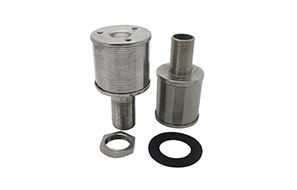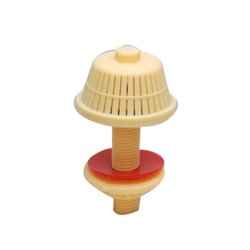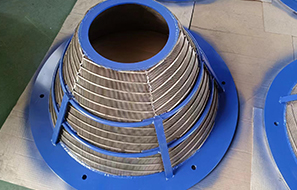Choosing the proper filter nozzle for an industry filter application is not always easy. There are many variables to consider and evaluate, one of which is the nozzle’s material. The intrinsic characteristics of the material can extend or shorten the operating life of the nozzle but also positively or negatively affect its performance.
TEMPERATURE OF THE ENVIRONMENT AND OF THE FILTER LIQUID
The temperature at which the nozzle will operate is of primary importance. Each material has a melting point determined by different temperatures. It is crucial to consider both the temperature of the filtered liquid and of the environment in which the nozzle is operating.
CORROSION CAUSED BY THE ENVIRONMENT AND BY THE FILTERED LIQUID
Each material, including plastic and steel, has different corrosion resistance characteristics. Therefore, it is essential to study both the level of corrosion of the environment in which the nozzle is inserted and the corrosive characteristics of the filtered liquid.
COST
Often, choosing the less expensive option hides additional long-term costs.
STAINLESS STEEL

Stainless steel is an alloy of iron and carbon, with other elements such as chromium, nickel, molybdenum, vanadium, titanium. The most popular steels in our sector range from 303 to 316L.
Thanks to its greater hardness and resistance to erosion and to chemical attacks, 316L stainless steel is used for special applications. The various types of steel have different degrees of weldability, 304 and 316L, which allow excellent quality and tightness welds and are therefore used in the food industry.
THERMOPLASTIC MATERIALS

These are polymers that have high melting points and can be processed by injection molding. The most used for making nozzles are polyvinyl chloride (PVC), polypropylene (PP), polyvinylidene fluoride (PVDF), each one with specific characteristics of temperature and resistance to chemicals. The choice of the most appropriate material is usually made based on the compatibility with the materials of other parts of his plant, such as pipes and valves.
We are the manufacturer of stainless steel filter nozzles, focusing on providing high-quality stainless steel filter nozzles for various industries, and helping buyers provide better filtration solutions.
 Centrifuge Baskets - Mineral Processing Equipment
Centrifuge Baskets - Mineral Processing Equipment
 Sieve Bend Screen for Starch Screening
Sieve Bend Screen for Starch Screening
 Media Retention Filter Nozzle for Liquid Filtration
Media Retention Filter Nozzle for Liquid Filtration
 Stainless Steel Parabolic Screen for Mineral Processing
Stainless Steel Parabolic Screen for Mineral Processing